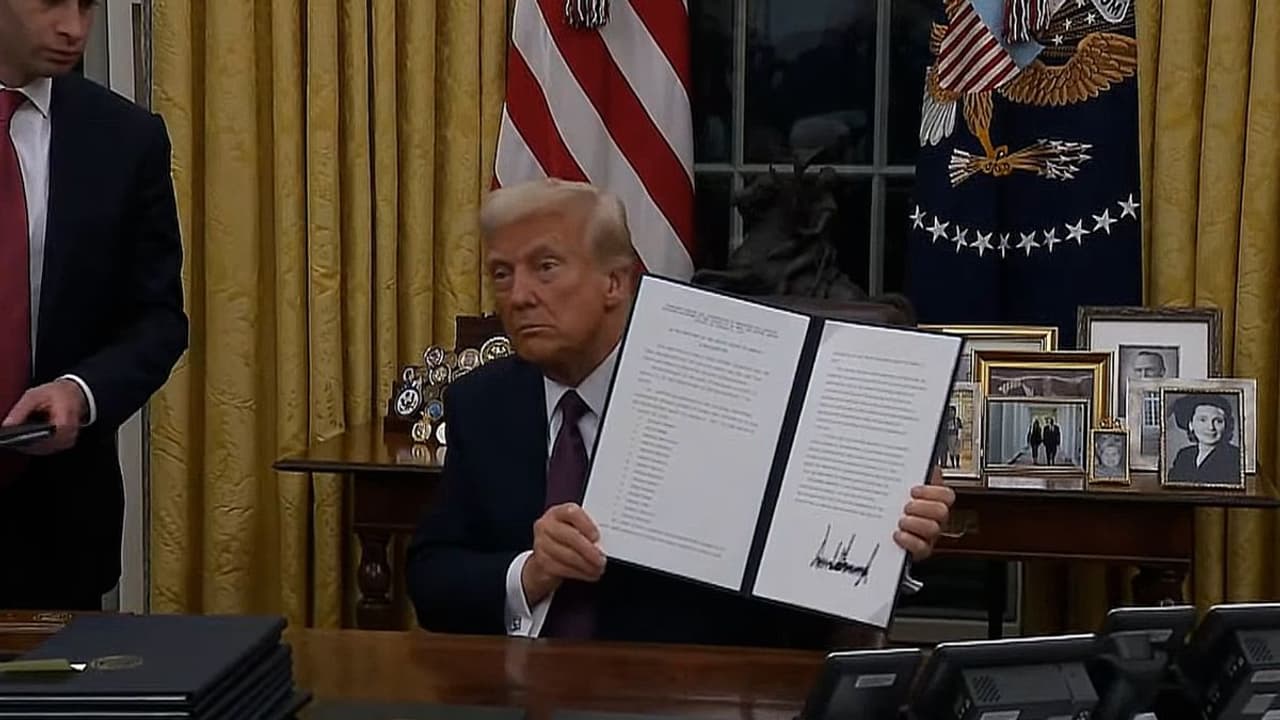Immigrants' rights advocates are suing the Trump administration over an executive order denying automatic citizenship to certain US-born children, arguing it violates the 14th Amendment and is unconstitutional.
Immigrants' rights advocates have swiftly moved court against President Donald Trump's executive order that seeks to deny automatic citizenship to certain children born in the US. The order, titled "Protecting the meaning and value of American citizenship," targets children born to undocumented immigrants or those with temporary visas, requiring at least one parent to be a US citizen or green card holder for the child to receive birthright citizenship.

The American Civil Liberties Union (ACLU), Asian Law Caucus, and other advocates have filed a lawsuit in a US district court in New Hampshire, challenging the constitutionality of Trump's order. They argue that the order violates the 14th Amendment, which guarantees citizenship to all persons born in the US, regardless of their parents' immigration status.
At the heart of the issue is the interpretation of the phrase "subject to the jurisdiction thereof" in the 14th Amendment. Trump's order claims that this phrase excludes children born to undocumented immigrants or those with temporary visas. However, immigrants' rights advocates argue that this interpretation is selective and self-serving, and that the phrase has been consistently interpreted to include nearly all individuals born on US soil.
The executive order has sparked widespread concern among immigrant families, who fear that their US-born children will be denied citizenship and face uncertainty about their future. Advocates argue that this order is not only unconstitutional but also cruel and contrary to American values.
"The EO is most certainly going to be challenged on constitutional grounds. It is at its weakest when it announces that even children born in the US to parents who are in the United States legally, albeit temporarily, will not be considered US citizens. At issue is the constitutional language 'under the jurisdiction of'. It is both legally impossible and commonsensically ludicrous to claim that a person in the US, who is accountable for disobeying the laws of the US is not under the jurisdiction of the United States. Such children would also be unable to obtain required identification and, as they grow up, be denied the right to vote, serve on juries, hold certain jobs, and otherwise be a full member of American society, even though they were born in the United States and have never lived anywhere else," said Rajiv S Khanna, managing attorney at Immigration.com.
Anthony D. Romero, executive director of the ACLU, emphasized that birthright citizenship is a cornerstone of US democracy and that the Trump administration's overreach will ultimately be challenged in court. Aarti Kohli, executive director of the Asian Law Caucus, noted that birthright citizenship has been vital to Asian American communities, who have faced decades of exclusionary laws.
Also Read: China pledges support for WHO after Trump orders US withdrawal from global health body
